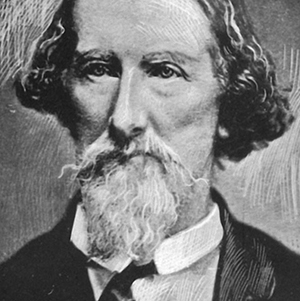February 6
Published in On this Day listing- 1840

Above: Dubliner Frederick Edward Maning—sat as a judge in New Zealand’s Native Land Court, where his considerable knowledge of the Maori language, customs, traditions and prejudices served him well.
The Treaty of Waitangi proclaimed British sovereignty over New Zealand. Designed to safeguard the interests of the Empire and to appease sections of the native Maori population who sought Crown protection, the treaty was negotiated by the recently appointed lieutenant-governor, Captain William Hobson from Waterford. It was considerably flawed, however, not least because of differences in wording between the English and Maori versions. In any case, the pressures of the post broke Hobson’s health, sending him to an early grave two years later. Prominent amongst opponents of the treaty on the Maori side at the time was Dubliner F.E. Maning. A big man with considerable outback skills and a colourful personality, he had been adopted by the Maori as a ‘Pakeha Maori’—a European turned native—and had purchased a 200-acre farm and taken a Maori wife. Though he argued that the Maori would never willingly accept European domination, his opposition mellowed with time. When tensions over disputed land purchases eventually led to the New Zealand Wars (1845–72), he gave his support to the chief Hone Heke, one of the principal antagonists opposing the government, while at the same time using his influence with the Maori to intercede on behalf of settlers. By the end of the war he was firmly on the government side and sat as a judge in the Native Land Court, where his considerable knowledge of the Maori language, customs, traditions and prejudices served him well. His A history of the war in the north of New Zealand against the chief Heke (1862) and Old New Zealand (1863), partly a lament for the lost freedom enjoyed before European rule, are regarded as classics of New Zealand literature.
- 1971 Gunner Robert Curtis (20) of the Royal Artillery Regiment was shot by an IRA sniper during disturbances in north Belfast, the first serving British soldier to die violently in the Troubles.
- 1968 AWilliam Conor (c. 87), an artist renowned for his portrayals of working-class life in Ulster, died.
- 1958 A British European Airways aircraft bringing the Manchester United team home from Belgrade crashed on take-off at Munich airport. The 21 who died included team members, sports journalists and club officials.
- 1918 The Representation of the People Act gave the vote to all men over 21 and most women over 30 in the United Kingdom.
- 1911 Ronald Reagan, US Republican statesman and 40th president (1980–8), born in Tampico, Illinois. During his four-day visit to the Republic of Ireland in June 1984 Reagan visited Ballyporeen, Co. Tipperary, from where his paternal great-grandparents, Michael and Catherine Reagan, emigrated to Illinois in the early nineteenth century
- 1564 Christopher Marlowe, poet and dramatist, notably author of Doctor Faustus, born in Canterbury, Kent.
















